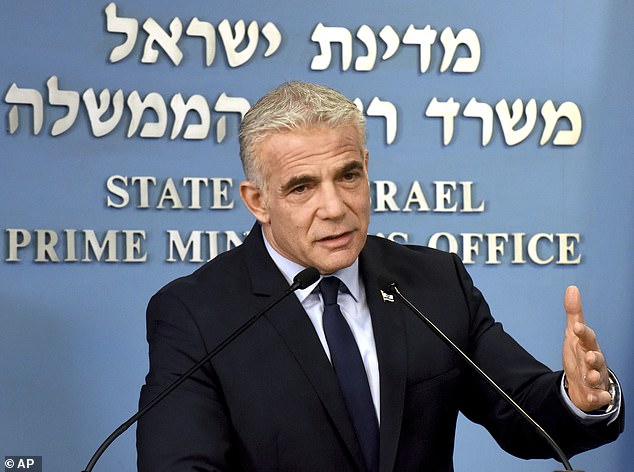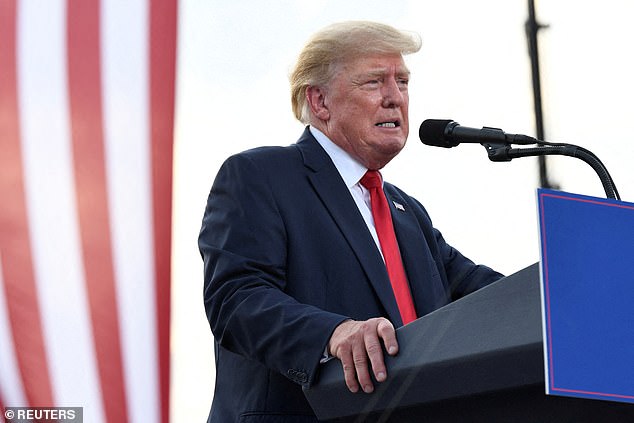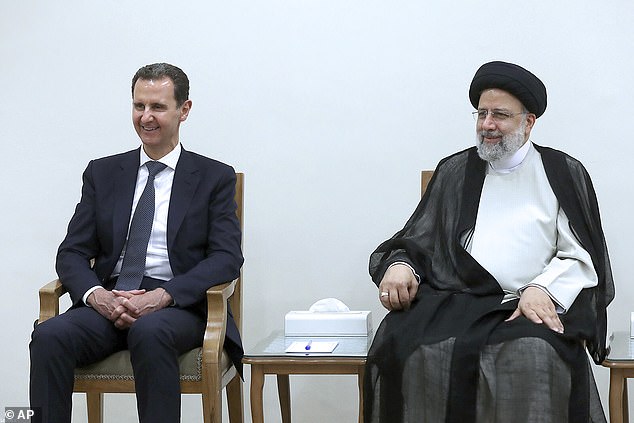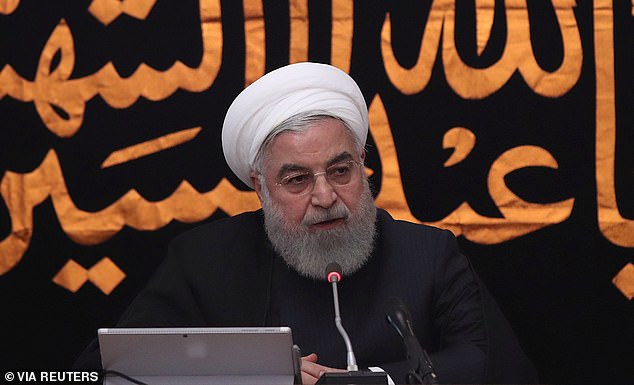
The head of Israel’s spy agency will visit the US in the coming days to try to block a deal with Iran over its nuclear programme.
The trip will be the latest in Israel’s push to persuade Western powers not to revive the landmark 2015 deal with Tehran, when US sanctions were lifted on Iran in exchange for major curbs on its nuclear activities.
Israel says a fresh deal would facilitate the funding of Iran-supported militants such as Hamas and would not prevent Tehran from developing a nuclear weapon – a goal Iran has always denied.

Israeli prime minister Yair Lapid (pictured) said the new deal between the US and Iran entailed ‘greater dangers’ than the previous one
Israeli prime minister Yair Lapid said the new deal entailed ‘greater dangers’ than the previous one.
He said: ‘We are making a concerted effort to ensure the Americans and Europeans understand the dangers involved in this agreement.’
He added he is also talking to European countries.
In 2018, then-US president Donald Trump unilaterally withdrew America from the 2015 deal and restored crippling sanctions.




In 2018, then-US president Donald Trump (pictured) unilaterally withdrew America from the 2015 deal and restored crippling sanctions.
Iran then ramped up its nuclear activities.
Lapid claims a new deal which removed sanctions would ‘give Iran $100 billion a year’ that would be used by Iran-backed militant groups Hamas, Hezbollah and Islamic Jihad.
Experts say Iran has enriched enough uranium up to 60% purity — a short technical step from weapons-grade levels of 90 per cent — to make one nuclear weapon should it decide to do so.






Syrian President Bashar Assad, left, attends a meeting with Iran’s Supreme Leader Ayatollah Ali Khamenei. Since the 2015 deal, Iranian influence has grown in war-torn Syrian
However, Iran still would need to design a bomb and a delivery system, which would likely take months.
Since the 2015 deal, Iranian influence has grown in war-torn Syrian, to the alarm of where their efforts have been key in helping President Bashar al-Assad regain most of the territory his forces lost since conflict erupted in 2011.
Iran’s troops and their proxies retain effective control of Syria’s eastern front with Iraq, where units from Iran’s elite Quds Force are suspected to be based, and its western border with Lebanon.
That corridor allows Tehran to transfer people, goods and military equipment across several countries – prompting alarm in Israel, which has carried out its multiple air attacks against Iranian forces and their allies in Syria.






The then-Iranian President Hassan Rouhani, speaking in 2019. Following the US’s withdrawal from the 2015 deal, Iran ramped up its nuclear activities